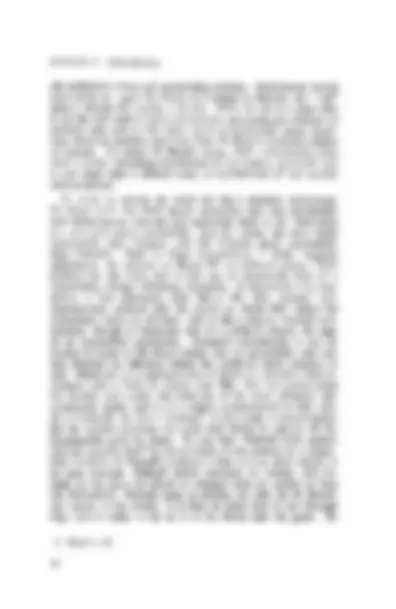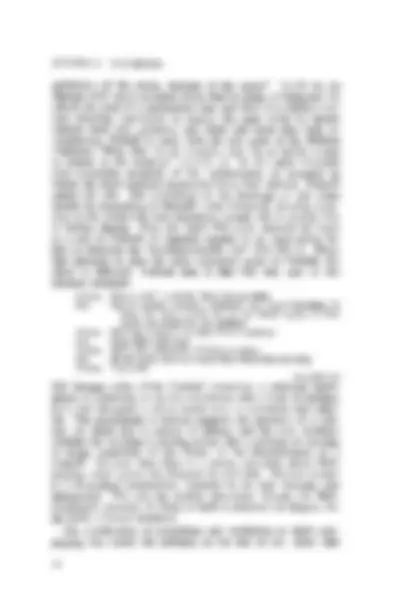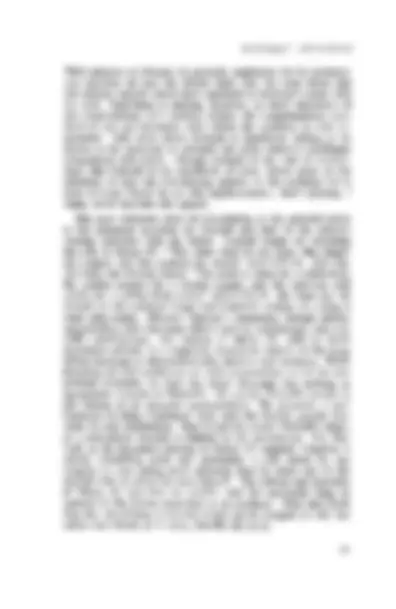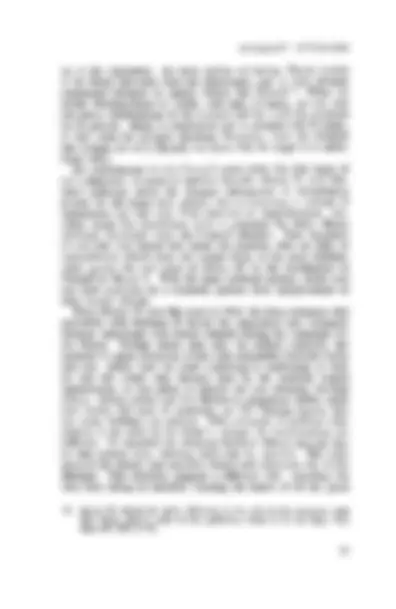











Study with the several resources on Docsity

Earn points by helping other students or get them with a premium plan


Prepare for your exams
Study with the several resources on Docsity

Earn points to download
Earn points by helping other students or get them with a premium plan
Community
Ask the community for help and clear up your study doubts
Discover the best universities in your country according to Docsity users
Free resources
Download our free guides on studying techniques, anxiety management strategies, and thesis advice from Docsity tutors
The various roles and players in Henry IV Part 1 of Shakespeare's Histories, including Prince Hal, Falstaff, Hotspur, and other characters. The author discusses how these characters use role-playing to manipulate situations and their relationships with each other. The document also touches upon the political implications of role-playing in the play.
Typology: Study Guides, Projects, Research
1 / 17

This page cannot be seen from the preview
Don't miss anything!










ANTHONY MILLER
The Henry IV plays are distinguished among Shakespeare's Histories by their range and their exuberant variety. Sooner or later, most commentators on the plays echo Samuel Johnson's generous encomium: "Perhaps no author has ever in two plays afforded so much delight." As he amplifies this judgment, John- son shows that his measure of delight is in part simply quanti- tative: the plays interest us through their great events and divert us through their slighter occurrences; they contain "incidents ... multiplied with wonderful fertility of invention" and "characters diversified with the utmost nicety of discernment."! The pleni- tude of the Henry IV plays consists first in the image of English society presented on the stage. There are the dour Henry IV and his few trusted associates of the "King's party"; an alliance of English, Welsh, and Scottish "Opposites against King Henry the Fourth"; representatives of the law, from the Chief Justice to a pair of decrepit "Country Justices"; "Country Soldiers", from the venal to the pathetically dutiful; and a crowd of "Irregular Humourists", led by Falstaff.^2 The society of the plays expands beyond even these broad limits, to people heard of but never seen-the popinjay courtier who delivered the king's message to Hotspur at Holmedon; the old bona-roba Jane Nightwork; and Falstaff's soldiers at Shrews- bury, drawn from an underworld of "discarded unjust serving- men, younger sons to younger brothers, revolted tapsters, and ostlers trade-fallen."3 The plays also expand in time, as it were, by their references backward to the deposition of Richard II and beyond that to the old quarrel of Bolingbroke and Mowbray, and forward to the accession of Henry V and beyond that to his military campaigns. Something else which contributes to the plenitude of the Henry IV plays is Shakespeare's creation of major characters
1 Johnson on Shakespeare, ed. Walter Raleigh (London, 1908), p. 124. 2 The descriptions of the different groups are taken from the list of characters in Henry IV Part 2 printed in the First Folio and reprinted in The Second Part of King Henry IV, ed. A. R. Humphreys (London, 1966), p. 2. 3 The First Part of King Henry IV, ed. A. R. Humphreys (London, 1960), IV.ii.27-9. All subsequent references are to this edition.
both vividly drawn in themselves and also given to acting out roles of their own devising. Such characters in a sense create new characters, and thus people the plays even more abundantly. In Henry IV Part I, where this feature is more marked than it is in Part 2, the characters' chosen roles are sometimes designed to be impressive, whether in their sobriety or in their spectacular quality; sometimes they are comic, using mimicry or parody. Nor do we see these roles only in the process of being acted out: sometimes past roles are remembered or future ones rehearsed. Shakespeare's rich elaboration of the motif of role-playing naturally throws up instances of dramatic irony. Sometimes the roles in which contrasting characters cast themselves reveal un- expected similarities of situation or outlook; sometimes, in the theatre of statecraft where roles are so variously assumed and changed, characters misconstrue one another at precisely those points where we should expect them to be most perceptive. The subject of role-playing in Henry IV Part I has been dis- cussed in this journal by David Boyd, in "The Player Prince: Hal in Henry IV Part 1".4 Dr Boyd treats lucidly the general issues of the theatrical metaphor in Shakespearean drama and the "metadramatic" implications of Henry IV Part I. His criticism of the play is often illuminating: his observations on the exchange of roles between characters and on the competitiveness of their role-playing, for example, do full justice to the play's finely con- trolled energy. These elements in Dr Boyd's article, however, are part of a broader argument about the dramatic function of role-playing in Henry IV Part I which I find less convincing. This argument centres the play firmly in the person of Prince Hal and locates "the essential basis of Hal's heroic stature" in his superior ability as an actor. For Dr Boyd, Hal is distinguished from the other principal players by his unique responsiveness to the diversity of the play's world, expressed in the range and ver- satility of his playing, in "his ability to inhabit a role fully and meaningfully, with neither cynicism nor self-deception, and yet be neither limited or defined by that role." I doubt that Hal occupies such a privileged position among the play's characters. On the contrary, he answers to the vocation of role-playing less effortlessly than his friends and political rivals. As he creates his most important role, that of the prodigal prince returning to his father and winning back his lost honour, Hal is exposed to
4 Sydney Studies in English, VI (1980-81), 3-16.
Boyd's point that Hal fools Falstaff in his role as madcap prince is nearer the mark, though it too requires qualification. There are signs that Falstaff has his suspicions about Hal's intention. If these suspicions are suppressed, it is the result not only of Hal's successfully playing the role of madcap. It also results ironically from Falstaff's own inability to recognize what he, of all the play's characters, is best fitted to recognize--that an accom- plished player knows his moment to change roles, and knows how to play to different audiences.
The motif of role-playing in Henry IV Part I answers to the variety and complexity of the playas a whole. Shakespeare creates a political world in which success depends on the ability to play roles, to manipulate responses, to manoeuvre others into playing supporting parts or acting as foils. The play generates admiration for those, like Henry and Hal, who master these arts, but it is admiration accorded from a distance and with a certain reluctance. An audience finds more enjoyment, and just as much to admire, in the anarchic playing of Falstaff and in the brilliant and energetic playing of Hotspur, even as it is forced to acknowl- edge the irresponsibility of the one and the quixotic nature of the other. The characteristic dramatic irony of Henry IV Part 1, by which characters reveal surprising points of similarity and commit surprising errors of judgment about one another, is also, of course, a function of the play's multiple foci. Except Hal and Falstaff, the four major characters rarely meet on stage, so that as they act out their chosen roles and allot imagined parts to others, they are in effect creating different plays. These plays may run concurrently, or allude to one another, or intersect, or diverge. Only the audience sees the play which contains all these plays, and therefore it is the audience, not any individual charac- ter, which has the pleasure and the challenge of responding comprehensively to its multiple aspects. The following discussion begins with the mutual role-playing of Hal and Falstaff in the first half of Henry IV Part 1. Here Hal feels his way toward the political and martial role which he is destined to play, laying conscious plans and revealing unconscious conflicts. The discus- sion then turns to a briefer consideration of Hotspur and Henry IV, before concluding with the dizzying varieties of role-playing in the climactic battle at Shrewsbury. From his first appearance, Falstaff adopts and discards roles with anarchic indifference. He jestingly bestows on the fraternity of highway robbers titles of chivalric dignity ("Diana's foresters,
Prince. Fal. Prince. Fal. Prince.
gentlemen of the shade, nUllions of the moon"-I.ii.25-6); he changes with equal readiness from thief to judge to hangman; he affects the pose of a melancholy man and then of a misled inno- cent swearing repentance; in exactly the same terms he swears himself back into outlawry; and when Hal taxes him with in- consistency, Falstaff is ready with the new pose of the Biblical Christian: "Why, Hal, 'tis my vocation, Hal, 'tis no sin for a man to labour in his vocation" (Lii.101-2). In the same favourite role--ironically proleptic of the righteousness or necessity in which the play's political antagonists dress their actions-Falstaff makes his exit. Hal contributes to the badinage of this scene mostly by responding to Falstaff's witty initiatives, drawing atten- tion to his verbal hits and displaying enough wit to prompt him to further display. Even the Gad's Hill trick, planned by Poins as a jest on Falstaff, is regarded equally as an opportunity for him to fabricate his "incomprehensible lies" (Lii.180-1). When Hal attempts to play the same mercurial game as Falstaff, the effect is different. Falstaff asks if Hal will take part in the planned escapade.
Prince. Who, I rob? I a thief? Not I, by my faith. Fal. There's neither honesty, manhood, nor good fellowship in thee, nor thou cam'st not of the blood royal, if thou darest not stand for ten shillings. Well then, once in my days I'll be a madcap. Why, that's well said. Well, come what will, I'll tarry at home. By the Lord, I'll be a traitor then, when thou art king. I care not. (Lii.134-43) Hal changes roles-from shocked innocence to reluctant indul- gence, to petulance, to an airy truculence with a trace of Hotspur in it-but his game is not so much witty as capricious and child- ish. The puzzlement it induces suggests the presence of a sub- text, in which Hal is unsure of himself and his role, doubtful whether his vocation is stealing purses like a madcap or tarrying at home, unmindful of the threats or the blandishments of a Falstaff. Yet even here there is a certain canniness about Hal's playing, which points the direction he will take. His first answer is a Falstaffian protestation, intended to be seen through and disregarded. The role has another dimension, though, for Hal's transparent pretence of virtue is itself a pretence--a disguise for his really virtuous intentions.
The combination of calculation and vacillation in Hal's role- playing also marks the soliloquy at the end of Lii. Here, Hal
tician against Hotspur. He may be looking forward to the day (at the end of Henry IV Part 2) when he will succeed his father and assume the dignity of the royal sun ruling in the firmament of England. Leaving aside for the present the first, it is obvious that Hal will become king not when he pleases but when his father dies. As heir apparent, Hal is a subject of time, perhaps more completely so than any other character in a play filled with references to time, haste, and the duration of life. In his first speech in I.ii, Hal plays admiringly on Falstaff's freedom from time; in this last speech, turning his back mentally on Falstaff, he attempts to create for himself a mastery over time which he can never attain. A similar strain afflicts Hal's next conceit: If all the year were playing holidays, To sport would be as tedious as to work; But when they seldom come, they wish'd-for come, And nothing pleaseth but rare accidents. (I.ii.199-202) According to Hal's plan, men will admire him all the more as prince and king because of the contrast he will create with his present prodigal self; the change will affect them like a wished- for holiday after work. But this conceit strikes the hearer rather oddly, since Hal describes his present life as one of idleness and loose behaviour. He is on holiday now, and his conversion will signal his going to work. Hence the conceit tends to operate at odds with its logical meaning, implying something like "I can't go on living in this holiday world forever; I'm having too much of a good thing." The time does eventually come when Hal's sports seem tedious to him: on his first appearance in Henry IV Part 2 he complains of weariness with small beer and vile com- pany. For the present, though, his way of life appears to afford him more satisfaction than he consciously admits in this solilo- quy. By recognizing that Hal reveals a degree of self-division which must be set against his cool purposiveness, we place him within, not outside, the various and shifting world of Henry IV Part 1 as a whole. We also escape the critical dilemma which makes of this speech either the repellent self-revelation of a Machiavel (decisively colouring all our responses to Hal) or a mere nod to the mechanical necessities of play-writing and Shakespeare's historical sources (to be noted and then forgotten).
7 The relation between Hal and Falstaff in this scene is well treated by William Empson, "Falstaff and Mr Dover Wilson", Kenyon Review, XV (1953), 213-62.
The climax to the peace-time playing of Hal and Falstaff comes in II.iv. Before Falstaff's entry in this scene, an episode occurs which shows Hal not so much playing a role as assuming the function of "presenter". This is the jest with the drawer Francis, whom Hal engages in perplexing conversation while Poins calls him from the next room. The humour of the improvisation arises from Francis's automatic answer to Poins ("Anon, anon") and from his final quandary, when he "stands amazed, not know- ing which way to go" (II.iv.77 s.d.). Hal's purpose in this exer- cise is obscure. Poins asks Hal to explain it, but he answers evasively: "I am now of all humours that have showed them- selves humours since the old days of goodman Adam to the pupil age of this present twelve o'clock at midnight" (II.iv.90- 3). It is the answer of the showman unwilling to interpret his own show, but the fact of Poins's question prompts the audience to ask it themselves. One answer arises from the context of the joke. Hal has been describing his acquaintance with Francis and his fellow drawers, congratulating himself on the loyalty he has won from them and on his proficiency in their language and customs. Hal is acquiring that knowledge of his future subjects which Warwick discerns in Henry IV Part 2 (IV.iv.67-78) and which he will utilize when he leads the English armies in France in Henry V. The jest with Francis sums up Hal's observations of the English people in a time of civil conflict. Francis stands for the citizenry of England, simple souls who must be courted and impressed by their rulers, and who are at this moment being called from two sides, obedience and rebellion. The lesson for Hal is that the exercise of royal vigilance can never be relaxed. This is a lesson which is no business of Poins's-hence another reason for Hal's evasiveness. Yet in this episode, too, there is a subtext which reveals a Prince of Wales less self-assured than his theatrical manipula- tions would suggest. Francis may stand not only for Hal's future subjects but, equally, for Hal himself. Like Francis, Hal is called in two directions, to his royal duty and to his prodigal pleasures. His question to Francis, "darest thou be so valiant as to play the coward with thy indenture, and show it a fair pair of heels, and run from it?" (II.iv.46-8) could equally be put to himself, serving his apprenticeship as heir to the throne. Like Francis crying "Anon, anon", Hal knows his duty and promises to do it, but he prefers to leave it to the indefinite future. In this light, the ex- planation of the jest to Poins has another possible meaning. Hal
Hal's mimicry of Hotspur is generally applauded for its accuracy, and certainly he gets the details right, like the roan horse and the delayed answer which have appeared in Hotspur's scene with his wife. Something is missing, however, in Hal's caricature of the single-minded and taciturn soldier: the complementary exu- berance and garrulousness with which the audience is well ac- quainted. This error about Hotspur is significant, failing to do justice to his character at precisely the point where it challenges comparison with Hal's. Though Hotspur in his role of warrior- hero, like Falstaff in his multitude of roles, shows none of the efficiency of Hal, his role-playing appeals to the audience (as it does to Lady Percy) by its very ingenuousness. Hal's playing, I think, never matches this appeal. The most elaborate piece of role-playing in this splendid scene is the rehearsal mounted by Falstaff and Hal of the prince's coming interview with his father. Falstaff begins by assuming the role of Henry IV: "This chair shall be my state, this dagger my sceptre, and this cushion my crown" (II.iv.373-4). Hal can- not resist the obvious thrust: "Thy state is taken for a joint-stool, thy golden sceptre for a leaden dagger, and thy precious rich crown for a pitiful bald crown" (II.iv.375-7). He does not let himself or the audience forget that Falstaff's version of a king is mere play-acting. Mistress Quickly's comments, though naively appreciative, have the same effect-and so, surprisingly, has Fal- staff's performance. His version of Henry IV, with its florid euphuistic periods, is a singularly inaccurate version of the king, whose language is characteristically decisive and compact. When brooding on civil conflict or on Hal's waywardness or on his own political triumphs, he may use richer language, but nothing as egregiously orotund as Falstaff's. Of course, Falstaff's parody is not aiming at an accurate representation. He promises a per- formance in King Cambyses' vein, and the literary parody pro- vides its own satisfaction. That is just the point: Falstaff's talents as a role-player become a liability to his percipience. For Fal- staff, as his mannered playing of Henry IV suggests, kingship is merely something acted out, pretended, a role which he can imagine no one taking more seriously than he takes any of the myriad roles in which he casts himself. The actions and speeches of Henry IV and Hal do confirm that the successful king or aspirant to the throne must play to an audience. They also show that the role of king is not one which can be dropped at will, but rather one which, as it were, absorbs the actor.
.. but for sweet Jack Falstaff, kind Jack Falstaff, true Jack Falstaff, valiant Jack Falstaff, and therefore more valiant, being as he is old Jack Falstaff, banish not him thy Harry's company, banish not him thy Harry's com- pany, banish plump Jack, and banish all the world. Prince. I do, I will.
Hal seems impatient with Falstaff's performance: "Dost thou speak like a king? Do thou stand for me, and I'll play my father" (II.iv.427-8). He begins convincingly: "Now, Harry, whence come you?... The complaints I hear of thee are grievous" (II.iv.434, 436). These authoritative accents, however, give way to the language of fascinated excess which Falstaff so often calls up in Hal: "Why dost thou converse with that trunk of humours, that bolting-hutch of beastliness, that swollen parcel of dropsies, that huge bombard of sack ... ?" (II.iv.442-5). The subject of Falstaff, always the cause that wit is in other men, diverts Hal from the course of his regal speech, just as Falstaff himself suc- ceeds in diverting him from the course of action he so carefully plans for himself. Politic plan and diverting pleasure thus con- tinue to exert their contrary attractions on Hal in this episode. The very fact of Hal's participation in the "play extempore" proves the force of the latter attraction: the play begins after the news of the Percies' rebellion and after Hal receives his summons to the court for next morning. It thus has the air of a last indul- gence before Hal must turn to affairs of state. It is also a rehearsal for Hal's serious entry into those affairs. The change of roles in the play extempore, when Hal "deposes" Falstaff, is proleptic of the change of allegiance--or declaration of true allegiance--which Hal will profess to his father in III.ii and act out at Shrewsbury.
The divisions in Hal receive their most intriguing expression in his response (given in the person of Henry IV) to Falstaff's im- passioned speech (made in the person of Hal) against his own banishment. Fal.
(II.iv .469-7 5)
As Falstaff introduces the subject of his banishment for the sec- ond time in this scene, it is difficult to gauge his tone. He may be showing the misplaced confidence in Hal's affection which he will show toward the end of Henry IV Part 2. In this case, his crucial error of judgment continues: the parodist of regal gravity and the exponent of unbridled self-interest fails to see how those very things will finally sunder him from the prince. The urgency of Falstaff's speech, however, with the word "banish" sounding
never has a better scene than this one in which he bursts upon the play. That is to say, Hotspur does not have Hal's patient capacity to redeem dramatic time. Nor does he know how to make offence a skill in his ridicule of his ally Glendower in JILi. Here, Hotspur practises a comedy of deflation similar to Hal's, though where Hal is (or manages to seem) jocular, Hotspur is abrasive. Hotspur's misjudgments and indiscretions are crippling defects in the world of political rOle-playing, as his father and uncle try continually to teach him. For an audience, however, Hotspur provides a gratifying contrast to the circumspection of the poli- ticians. In this respect, he has more in common with Falstaff than either character would recognize. Like Falstaff again, Hot- spur is not altogether blind to the tactics of successful players: he sees and disdains the subterfuges which they practise. Thus it is Hotspur who, of all the observers of the king's rise to the throne, gives the best accounts of it (Liii.236-52, IV.iii.52-88). The things Hotspur catalogues-diplomacy toward prospective allies, seizure of political opportunity, cultivation of regal majesty-are the very things to which the king himself attributes his success. Hotspur's sublime contempt for political role-playing and his natural volatility make him always prone to exploitation by his trimming father and sinister uncle. This is most apparent in the last phase of the play, when Worcester conceals from Hotspur the king's offer of peace, summing up his character as the world sees it: "A hare-brain'd Hotspur, govern'd by a spleen" (V.ii.19). Thus manipulated and slighted, Hotspur the general addresses his fellow rebels in handsome and generous-spirited speeches, but we cannot forget that he is not truly in control of his forces: rather, he is playing the role in a drama managed by Worcester. In this respect, the career of Hotspur converges with that of his opposite Hal, whose conversion to chivalry, though achieving the spectacular effect he planned, takes place on a stage managed by the shrewdest player of roles in Henry IV Part 1, the king.
The Henry IV who opens the play is harassed by regal busi- ness and dismayed by the waywardness of his son. He yearns to free England from war by leading a crusade to the Holy Land. His melancholy is quite convincing, and colours our attitude to him throughout the play. But it is typical of Henry IV that we cannot be certain of his sincerity. Even in this scene, he handles business so adeptly that we may suspect that his pious wishes are being put on record, as it were, in order to shift the blame for war
on to his opponents. As news arrives of battles, Henry proves to be better informed than his informants, and to have already summoned Hotspur to appear before the Council. 10 When he orders Westmoreland to confer with him privately, we see that the public deliberations of the Council will be carefully prepared for in private. Henry is determined not to proceed out of anger, so that when he abruptly dismisses Worcester from the Council and sweeps out of it himself, we know that his anger is a calcu- lated effect. His performance in the Council scene gives the first signs of the community of political method between Henry IV and Hal. Hal's soliloquy about his planned reformation is immediately echoed by the king's first speech, also announcing a reversal of demeanour-in this case, from patience to imperiousness. An- other, much less proximate, echo is prepared for when Henry dismisses Worcester from the Council chamber. This expulsion of one who has helped him attain his position, with an offer of reconciliation which does not sound likely to be soon fulfilled, looks across the two parts of Henry IV to the banishment of Falstaff by Henry V. With the same political instinct, father and son both proclaim by a dramatic gesture their independence of their former friends. When Henry IV and Hal meet in III.ii, the king compares Hal scornfully with Richard II before his deposition and compares Hotspur admiringly with Henry himself during his campaign for the throne. Though Henry sees only the surface contrasts, the audience is again conscious of the deep similarities between father and son. Henry uses the same cosmological symbolism as Hal: he was the comet who amazed men by his carefully staged appearances, as Hal plans to imitate the sun breaking through clouds. Henry points out that Richard's gregarious habits made men loathe the taste of sweetness, as Hal likewise knows that too many holidays are tedious. Hal's principle of political role- playing is the same as his father's, though his circumstances are different. To supplant the skipping Richard, Henry ensured that he was seldom seen, winning solemnity by rareness. Hal must succeed the distant and secretive Henry and overcome the lordly Hotspur. This situation suggests a different role-sounding the very base string of humility, winning the hearts of all the good
10 Henry IV shows the same efficiency at the end of his interview with Hal, when Blunt's news of the gathering rebels is to the king "five days old" (IIl.ii.172).
Nor can one England brook a double reign Of Harry Percy and the Prince of Wales. (V.iv.65-6) In fact, as we see, the England of Henry IV can readily contain an indefinite number of mockery kings subserving his political ends. The heroic pre-eminence of these two claimants to the throne, at the moment when their long-heralded meeting takes place, loses some of its currency value in the flood of counterfeits. Hal and Hotspur act their roles in a play within the play, and the drama which contains theirs is directed by Henry and Worcester. Hotspur's naive ideal of martial heroism has always looked vulnerable to the manipulation of his unscrupulous elders. But Hal's assumption of the heroic role, though more knowing than Hotspur's, proves comparably circumscribed. It is appropriate, therefore, that at the moment of Hotspur's death, when Hal's ambitions seem fulfilled, the rivals should be linked. Hal graciously finishes Hotspur's dying speech for him, and symbolically takes on the role of vanquished as well as victor: But let my favours hide thy mangled face, And even in thy behalf I'll thank myself For doing these fair rites of tenderness. (V.iv.95-7) It is not only that the play's two youthful opposites meet at this point. Though Hotspur's curtailed death speech signifies his poignant failure to carry off his last role, he nevertheless wins a kind of victory. Hotspur's death is a departure from the realms of "thoughts, the slaves of life, and life, time's fool,/ And time, that takes survey of all the world" (V.iv.80-1). He escapes from the stage on which Hal must continue to act roles whose value, given the reality of the political theatre revealed at Shrewsbury, takes on an air of brittle transitoriness. Something of the play's miraculous vitality dies with Hotspur. Hal's elegy, despite its companionable gestures, has also a certain stiffness and chilliness about it-in the lines quoted, for example, and in the moraliza- tion of Hotspur's death, "Ill-weav'd ambition, how much art thou shrunk!" (V.iv.87). Hotspur was without ambition, in the low sense of the word. In its other Renaissance sense, the spirit of disinterested emulation, Hotspur was supremely ambitious, but the garment of this ambition retains its capaciousness. Hal's triumph is thus not, to the audience, the simple and spec- tacular coup de theatre he planned. As Hotspur's death speech is cut off before he has played out his part, so Hal's private re- flections over the bodies of Hotspur and Falstaff do not have the
finality he intends. Hal coolly writes out of his play the parts of rival warrior and old acquaintance. But Falstaff refuses to be cut from the play, or to be cast in an unfitting role. He rises from his acted death, and with his horrible stabbing of Hotspur's body acknowledges that the hero's imaginative vitality cannot be put down either: "'Zounds, I am afraid of this gunpowder Percy, though he be dead; how if he should counterfeit too and rise?" (V.iv.120-2). All the major characters of Henry IV Part 1 play out their roles successfully by their own lights, and all have their appropri- ate triumphs. This generalization applies least certainly, I think, to Hal. The political victory lies more with Henry IV than with his son-or rather it lies with the House of Lancaster, bound tightly together in defence of Henry's throne. King and Prince of Wales are joined by another son, Prince John, in whom Hal discerns the family trait of winning admiration by the art of surprise: By God, thou has deceiv'd me, Lancaster, I did not think thee lord of such a spirit: Before, I lov'd thee as a brother, John, But now I do respect thee as my soul. (V.iv.16-9) Hal commits himself at the end of the play to a pragmatic and comparative narrow brand of role-playing. Though the decisive break with Falstaff has not come, it is foreshadowed. Hal sees Falstaff through Prince John's eyes-"This is the strangest fel- low, brother John" (V.v.154)-and relegates his mercurial role- playing to the category of mere lying-
For my part, if a lie may do thee grace, I'll gild it with the happiest terms I have. (V.v.156-7)